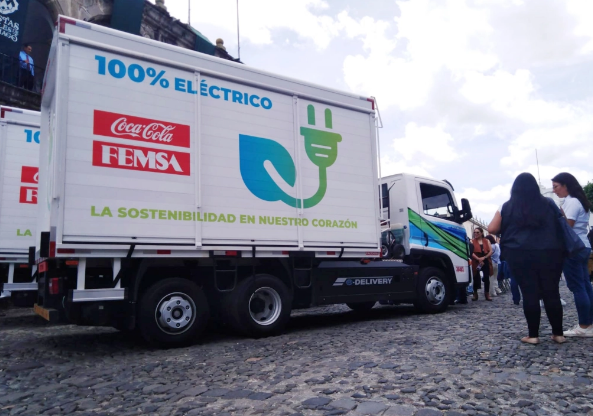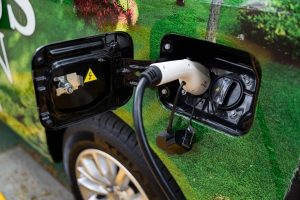
Coca Cola FEMSA Incorporates Fleet of 100% Electric Trucks in Guatemala

The incorporation of electric vehicles has become a priority in Coca Cola FEMSA‘s operations in Latin America.
In Mexico, Brazil and Colombia, the company has the largest number of delivery trucks, continuing its secondary fleet replacement program.
From 2015 to 2021, the company reduced CO2 emissions by 28% in manufacturing processes, Scope 1 and 2 of SBTi targets and 14% in the value chain. In addition, they have 53% renewable energy in their operations.
Recently, Coca Cola FEMSA announced an investment of half a million dollars to start operations of its new fleet of 100% electric trucks in Antigua Guatemala.
This initiative is part of the company’s sustainable mobility strategy, which eliminates the use of fuel per distance traveled, thanks to a standardized protocol aimed at strengthening the entire distribution chain.
Read also: BYD Unveils Three Electric Cargo Trucks in Colombia
Regional Pioneers
The multinational beverage company points out that this is the first operation in Central America, after Brazil, to acquire these vehicles, which will be used in the city of Antigua Guatemala and have a charging station consisting of energy dispatchers for electric vehicles, installed in the distribution center located in Chimaltenango.
“As a leader in the beverage industry, we are committed to reducing our carbon footprint and promoting sustainability through the gradual transition to the use of electric vehicles,” the Coca Cola statement said.
In addition to promoting the availability of sustainable vehicles, Coca-Cola FEMSA Guatemala is focused on strengthening key road safety indicators, operational improvements, and route optimization.
Through digitalization initiatives in its delivery routes, the company seeks to reduce operating times, emissions, and maintenance costs.
The company expects a 25% increase in fuel efficiency (MJ/km of distance traveled) by 2030.
It also estimates that 45% of its fleet will be made up of electric vehicles, and that the sustainable mobility strategy will be expanded to all the countries in which it operates.





